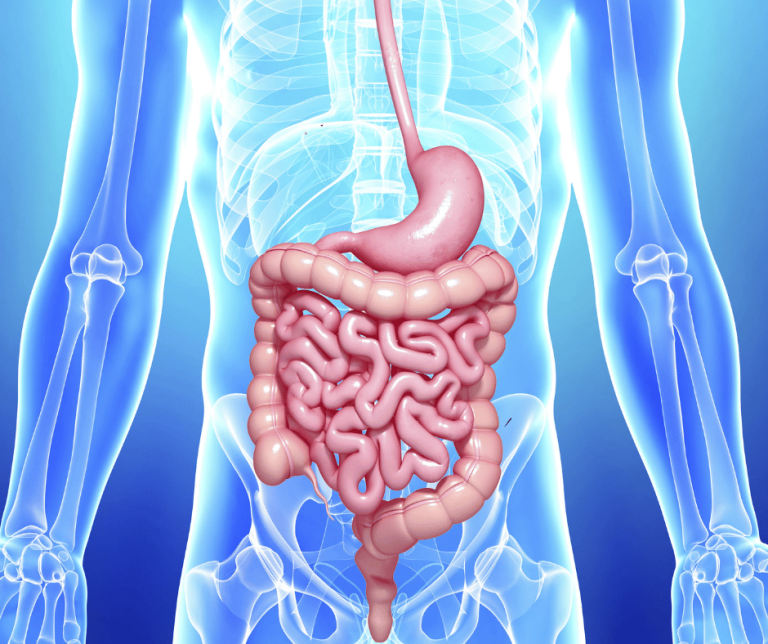
Poop & Weight Loss/Gain: How Your Bowel Health Impacts Your Scale
Your scale isn’t measuring fat — it’s measuring what your gut hasn’t let go of. Hidden stool retention, slow motility, and gut bacteria can quietly

Home » The Impact of Stress on Digestion and How to Manage It
In today’s fast-paced and demanding world, stress has become an inevitable part of our lives. Whether it’s work pressure, personal responsibilities, or financial worries, stress can take a toll on our physical and mental well-being. One aspect of our health that is significantly affected by stress is our digestion. The gut-brain axis, a bidirectional communication network between the gut and the brain, plays a crucial role in this connection. In this comprehensive blog post, we will delve into the fascinating relationship between stress and digestion, exploring how chronic stress can lead to various digestive issues. Moreover, we will provide actionable tips and strategies to manage stress effectively and promote better digestive health.
The gut-brain axis serves as an intricate communication system between the central nervous system and the gastrointestinal tract. When we experience stress, the brain sends signals to the gut, leading to various physiological responses. Stress triggers the release of stress hormones, such as cortisol, which can disrupt normal digestive functions.
In this section, we will discuss the complex mechanisms involved in the stress-digestion connection. We will explore how stress affects the enteric nervous system, often referred to as the “second brain” due to its vast number of neurons and sensitivity to stress. Additionally, we will present scientific evidence that links stress to common digestive issues, including indigestion, bloating, and irritable bowel syndrome (IBS).

Chronic stress can wreak havoc on various digestive functions. It can influence the production of digestive enzymes and stomach acid, leading to improper breakdown of food and nutrient absorption. Furthermore, stress can affect gut motility, causing irregular bowel movements and constipation or diarrhea.
In this section, we will provide an in-depth explanation of how stress disrupts these essential digestive processes. By understanding the impact of stress on digestion, readers can recognize the signs and symptoms of stress-related digestive problems and take proactive measures to mitigate them.
Stress has been linked to a myriad of digestive problems that can significantly impact an individual’s quality of life. Conditions such as acid reflux, gastritis, and peptic ulcers are often exacerbated by stress.
Using real-life case studies and medical evidence, we will explore the relationship between stress and these common digestive issues. By shedding light on these connections, readers can gain insight into their own digestive health and seek timely medical intervention.
Recognizing the detrimental effects of stress on digestion, it becomes crucial to implement effective stress management techniques. In this section, we will provide a comprehensive list of evidence-based strategies to reduce stress levels and promote better overall well-being.
From mindfulness practices like meditation and deep breathing exercises to the positive impact of regular exercise on stress reduction, we will offer practical tips that readers can incorporate into their daily routines. Additionally, we will emphasize the importance of engaging in hobbies and activities that encourage relaxation and stress relief.

While managing stress is essential, maintaining a healthy diet also plays a significant role in supporting gut health during stressful times. In this section, we will explore stress-reducing foods that can positively influence the gut microbiome and alleviate digestive issues.
We will provide a list of foods rich in omega-3 fatty acids, probiotics, and other nutrients that have been shown to improve digestive health. Furthermore, we will discuss the negative effects of stress-triggered unhealthy eating habits and offer practical suggestions to overcome them.
Stress management goes beyond just meditation and dietary adjustments; it involves making positive changes in various aspects of our lives. In this section, we will explore lifestyle changes that can significantly impact digestive health and overall stress levels.
We will delve into the importance of establishing a regular sleep pattern, as inadequate sleep can exacerbate stress and lead to digestive disturbances. Moreover, we will discuss ways to minimize stress at work or in daily life, such as effective time management and setting boundaries.

For individuals experiencing chronic or severe digestive issues related to stress, seeking professional help is paramount. In this section, we will emphasize the significance of consulting healthcare professionals who specialize in digestive health.
We will discuss the roles of gastroenterologists, nutritionists, and therapists in diagnosing and treating stress-related digestive problems. By encouraging readers to seek expert advice, we aim to promote early detection and effective management of digestive issues.
In conclusion, the impact of stress on digestion is undeniable, and its consequences can significantly affect our overall health and well-being. By understanding the stress-digestion connection and implementing effective stress management techniques, we can take control of our digestive health and lead a more balanced life.
Prioritizing a healthy diet, making positive lifestyle changes, and seeking professional help when necessary are vital steps towards managing stress and promoting better digestive health. Remember, the key lies in being proactive and taking charge of our physical and mental well-being. So, let’s embark on this journey together to a healthier, stress-free life. Your gut will thank you for it!

Your scale isn’t measuring fat — it’s measuring what your gut hasn’t let go of. Hidden stool retention, slow motility, and gut bacteria can quietly

Your poop is a real-time report card on your gut health—and most people are ignoring it. From color changes to weird shapes to the clues

Wheat isn’t the villain—it’s the kind of wheat that’s wrecking your gut. From ancient grains to modern hybrids, discover how today’s wheat triggers inflammation, worsens

Your gut isn’t just digesting food—it’s controlling your hunger, energy, and even how fast you burn fat. Inside you is a powerful hormone called GLP-1,

Happy Poops.
What about your friends?